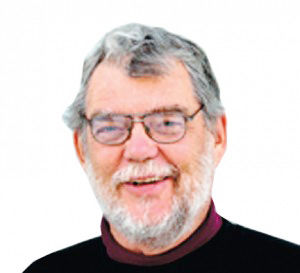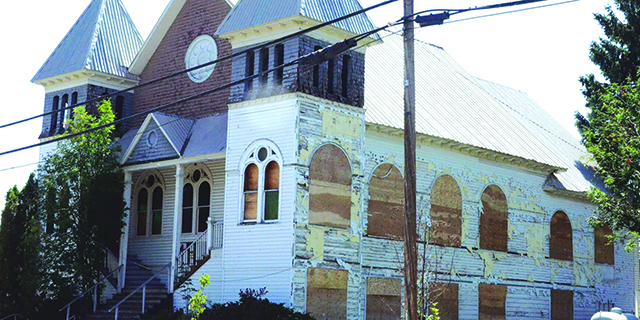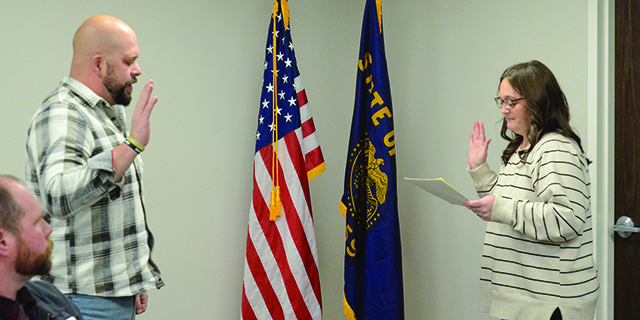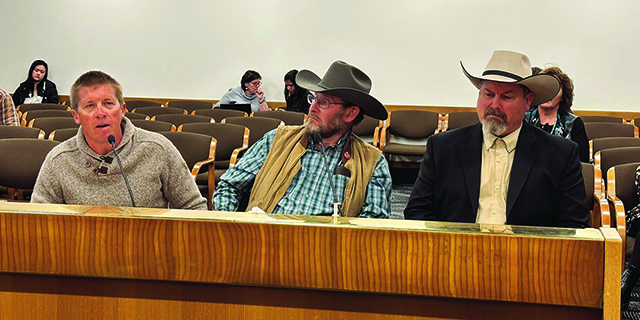MAIN STREET: McClaran led a life of deep reflection
Published 4:00 pm Tuesday, January 14, 2014

- Wandschneider_mug
Jack McClaran made it through Christmas, but not into the New Year. His service was at the Baptist church in Enterprise and hundreds came to pay respects with some notice at another time of year there might have been thousands. As it was some traveled far, and many stayed after the service to trade memories.
I cant remember when I first met Jack I came to the county in 1971 and he was just here. At a school board meeting or basketball game, in the lobby at the Post Office ready for a conversation, and, in the years that I owned the Bookloft, having a cup of coffee and talking about books, history, and politics the day or two before Christmas when he came in to shop.
Trending
I began visiting Jack and Marge on a regular basis a couple of years ago. Jacks heart and lungs were weak, but his mind was strong, and we talked about basketball and politics, the look of Enterprises Main Street and the new hospital, about herding sheep as a boy in the high country, high school in Lewiston (where Jack competed against Biden Tippett from Clarkston High), the ranch and this place and that place on Lightning Creek and Cow Creek and Tulley Creek. Marge chimed in and talked about her parents at the University of Idaho both of them taught there and told again the story of her boating up the Snake River to see where she might live if she and Jack married. They did and she did.
Especially in early visits, when Jack was reading voraciously and going back through the years of his life, we talked about the war. We both read The Last Days of Hitler and wondered at the charisma of Hitler and the acquiescence of the German people. We went over his high school graduation and almost immediate relocation to Europe as a tanker rolling across Europe shortly after D-Day. He had told that story in minute and emotional detail to a large crowd at the Oddfellows Hall in Enterprise a few years ago. He hadnt jumped at that chance, but buoyed by his friend Alvin Josephy Alvin had written about his Marine Corps time in the Pacific and knowing that few are left who remember and some now even dispute the Holocaust, he did it.
So we revisited the closing days of World War II. Jack talked about tanks how new ones arrived wrapped in plastic packages after so many had been put out of commission and so many men had lost their lives in a first attempt at crossing the Rhine. Tankers, he said, werent afraid of death, but of how they would die, cooked in a tank. Getting back in a tank after the layoff in the Dutch village, waiting for more men and tanks, was the hardest thing he did in his life.
And he talked about the liberation of Buchenwald the emaciated prisoners that he was responsible for feeding, one all-liquid meal at a time; the impossibility of the German people not knowing about the death camps; the puzzle of highly intelligent normal Germans falling under the Nazi spell. The big question: How can we humans do these things to each other?
Most of our conversations were not so grim. What might Jack have been if not a rancher? Maybe something in medicine or a stone mason. Was it a relief to give up sheep entirely after the war? There is something to being a shepherd with sheep that cattle dont demand.
And the road to Dug Bar; Gonzaga basketball; Jacks own basketball days with the occupation army in Europe; daughter Chriss basketball; Dennis Raymond playing for Enterprise; the granddaughters on the ranch; my grandchildren; baseball; the Taoist religion; Tom Dorrance and horses. Once, when Tip Proctor was there, gathering cows in canyons and in the Nevada desert.
Trending
But for Jack and his generation, World War II was the event that marked their lives. We are blessed to have Jacks story recorded.
I would like to reach out to those who are left the vets who served; those who raised Victory Gardens, worked in factories, and watched for floating, armed Japanese balloons. Even, if some are among us, those who refused war on conscientious grounds, or were whisked to internment camps because of their Nisei and Issei roots. In our world, swimming in money and gadgets and cultural dissension, we need your stories.
Weve marked D-Day in June at the Josephy Center as a time to share stories and artifacts from this time in your lives. It seems a fitting way to follow and honor this relative, friend, and neighbor who, quietly, worked and served for 70 years after that jarring time out of time in his own life.
Rich Wandschneider directs the Josephy Library. His email is rich.wandschneider@gmail.com, phone 541-432-0505. More news on the D-Day event will follow.









